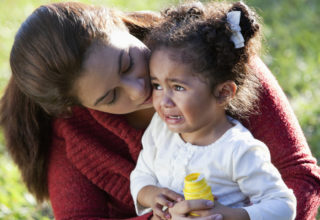Emotional Intelligence
Develop the virtues that will guide your child through school and beyond.
Positive Behavior Doing Hard Things Character DevelopmentImagine a magical world where children are internally motivated to be kind and generous. It’s doable!
Acknowledge and promote positive behavior….*Plinkit* with a Marble Jar! You’ll be amazed at the twinkle in your child’s eye each...
A simple tip sheet for how to praise your child. Something more than “Good job” or just commenting on process and...
Teach your child to *THINK* before they speak – to consider the impact of their words (vs. their intent). A helpful...
“Empathy is when you’re able to understand and care about how someone else is feeling.” -Mark Ruffalo, Sesame Street
A classroom favorite for cultivating empathy, kindness, community membership and awareness of others. What’s a real superhero? Someone who helps...
We can’t end sibling fighting nor force our children to get along, but we can help them recall happy moments...
The benefits of mindfulness and how it can help your child thrive. How to naturally and authentically infuse mindfulness into...
Help your child to control their thoughts by making Mindful Minutes a routine. Your step-by-step guide on why, how and...
Learn the strategies, tools and what to say to manage a healthy separation process between you and your child, especially...
The parent/caregiver-child separation process is often an emotional experience, and every child and family experiences it differently. Discover answers to...
Learn at what age you should expect that your child can practice skills without prompting and strategies for encouraging your...
*Yet* – Three letters that may change your child’s outlook on life, even among the youngest learners. Learn how the...
Let’s double-down on how to translate *growth mindset* into something tangible with your child. We’re focusing on how to teach...
If you want to raise a child who grows up to be a resilient, problem-solving, persistent and adaptable adult, let...
Any opportunity for a fresh start to refocus and reset (the New Year, the start of the academic school year,...
Learn why patience is a learned skill and essential for character and academic development, and seven key strategies to teach...
Learn why it is important for your child to be able to identify their emotions, and help them build their...
When your child starts demonstrating behaviors that show they are trying to ‘fit in’ or wants to ‘belong to a...
“Gratitude is not just a feeling outside your control that arrives willy-nilly. It’s more like a radio channel: you can...
The benefits of letting your child be bored and five ways to teach your child how to move through boredom....
Watching a child turn to you crying for the first time because “A friend said ‘I can’t play’”, is a...
Social exclusion is a main theme in a child’s development and there are many reasons why it happens. Empower your child to...
Teach your child a strong Friend Skill Set that can help them establish healthy, happy friendships and that will support...
Strategies, tools and scripts for teaching your child how to practice being a ‘good’ friend.
Around the ages of four and five, children begin to tell ‘tall tales’. They may also begin to tell fibs...
A practical roadmap to guide your response when your child lies. Understand the common developmental reasons for why children lie...
Community engagement with little ones is filled with layers of good intentions and ambitious learnings. It may take effort, but...
Answers to our most popular questions on a heavy subject. From “How do I explain…” to “How do I teach…”...




























